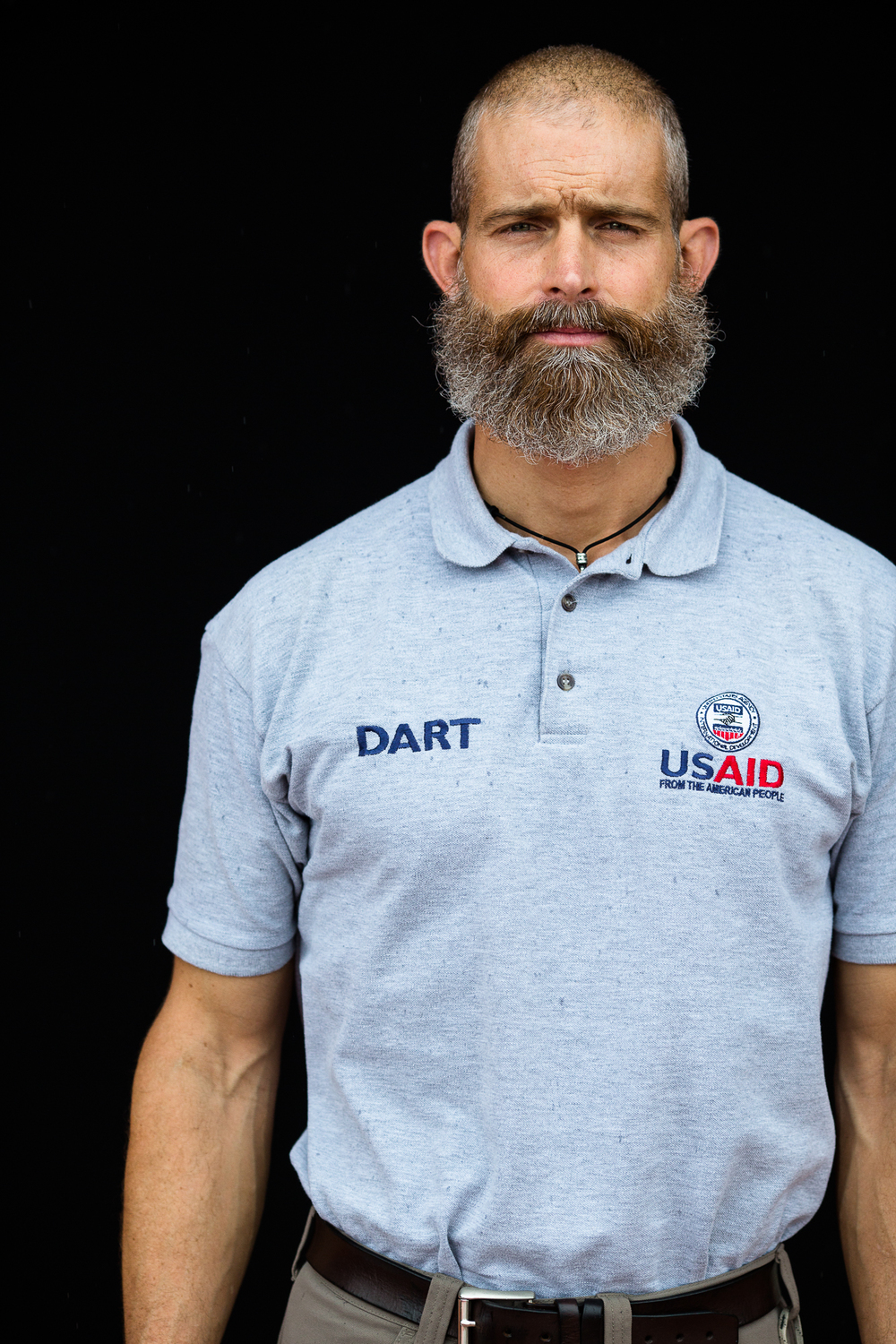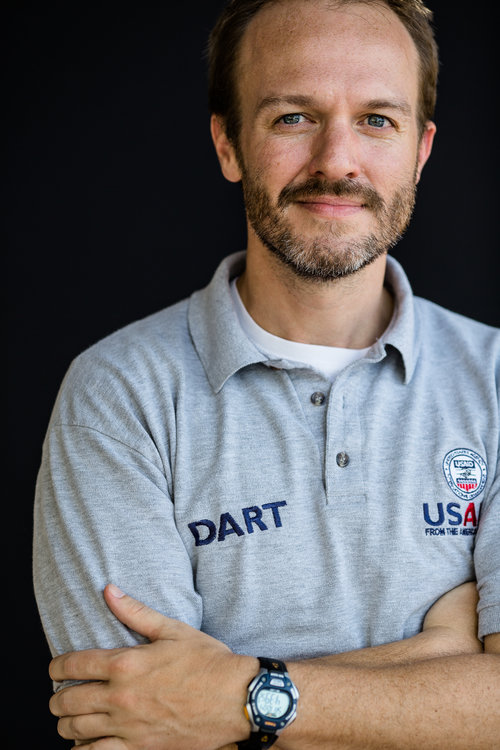This is the third post in the Profiles in Courage series in which photojournalist Morgana Wingard compiles snapshots and sound bites from USAID and Disaster Assistance Response Team staff on the front lines of the Ebola response. Here she and USAID’s Natalie Hawwa talk to the first man on the ground with USAID’s Disaster Assistance Response Team, Public Health Advisor Justin Pendarvis.
Written by Natalie Hawa | Photos by Morgana Wingard
Before the United States deployed an Ebola Disaster Assistance Response Team (DART), there was Justin Pendarvis. As one of the Public Health Advisors at USAID’s Office of U.S. Foreign Disaster Assistance, Justin was the first disaster expert tapped to travel to West Africa and assess the growing Ebola situation for USAID.
In early July, Justin traveled to Guinea – home of the epidemic’s ‘patient zero.’ His mission: to observe and gauge the growing outbreak, understand the coordination at play for the response, and identify key challenges.
In Guinea he observed the protocols required to run an Ebola treatment unit (ETU) at one of Medecins Sans Frontieres’ first facilities – an intense operation out of the capital city, Conakry. The following week he headed to Sierra Leone where frightening narratives were emerging from Kenema, one of the country’s largest towns hit hard by the virus.
“People were working around the clock, but more Ebola cases kept popping up,” recalls Justin. Health care workers were also falling ill.
By the time Justin landed in Liberia a week later it was clear that a significant amount of resources were needed to support West Africa and help save lives. Weak public health systems fell prey to the disease, and more help was needed. With key insight provided by Justin, USAID stood up the Ebola Disaster Assistance Response Team (DART) – the team of roughly 30 people from across the U.S. Government leading and coordinating the U.S. Ebola response.
Since then there has been an “evolution of thought,” says Justin, as everyday USAID, alongside the affected countries and international community continue to learn how best to respond to this unprecedented crisis and fight the world’s largest Ebola outbreak in history.
In Liberia’s capital Monrovia, most residents know somebody who has been affected by the epidemic. Justin, like many West Africans, finds Ebola and this humanitarian response to be very personal. He first arrived in Liberia in 2009 and considers it his second home. His first three-and-a-half years in country were spent working with a Liberian NGO to strengthen and rebuild the country’s health infrastructure — systems that had been destroyed by decades of brutal civil war. But progress was being made.
Five years ago, only 11 percent of women in Liberia were delivering babies at health clinics, putting most — those delivering at home often in unsanitary conditions – at great risk for complications and death. Liberia had one of the globe’s highest maternal mortality rates.
Fast forward to last year, where more than half of Liberian women were safely delivering at hospitals and clinics – a significant health breakthrough.Although maternal mortality is still high, the numbers have started to fall.
Today, in the face of Ebola, any woman who comes to a hospital to deliver her baby and is bleeding becomes untouchable. Staff hesitate to provide medical care due to fear and risk of contracting the virus, which is transmitted through contact with infected bodily fluids.
“We have to demystify Ebola, it’s not a superhuman and magical thing. We know how to control it, and we know how to keep people safe – but there is a crippling fear.”
Justin says that many of the challenges in responding to the Ebola crisis are fighting that exact fear, and arming West Africans with knowledge to understand the virus and learn how to weave protective measures into their daily life and cultural traditions.
As USAID continues to work toward bringing more Ebola treatment units online, the DART is also prioritizing messaging campaigns that educate communities on how to protect themselves. These efforts have already proven to be life-saving.
“Liberia is definitely a special place to me. I feel lucky to be in a position where I can hopefully contribute, and am proud of the momentum we’re now seeing – it’s this impact and the collective commitment alongside the Liberian people to fight Ebola that drives me forward every day.”





